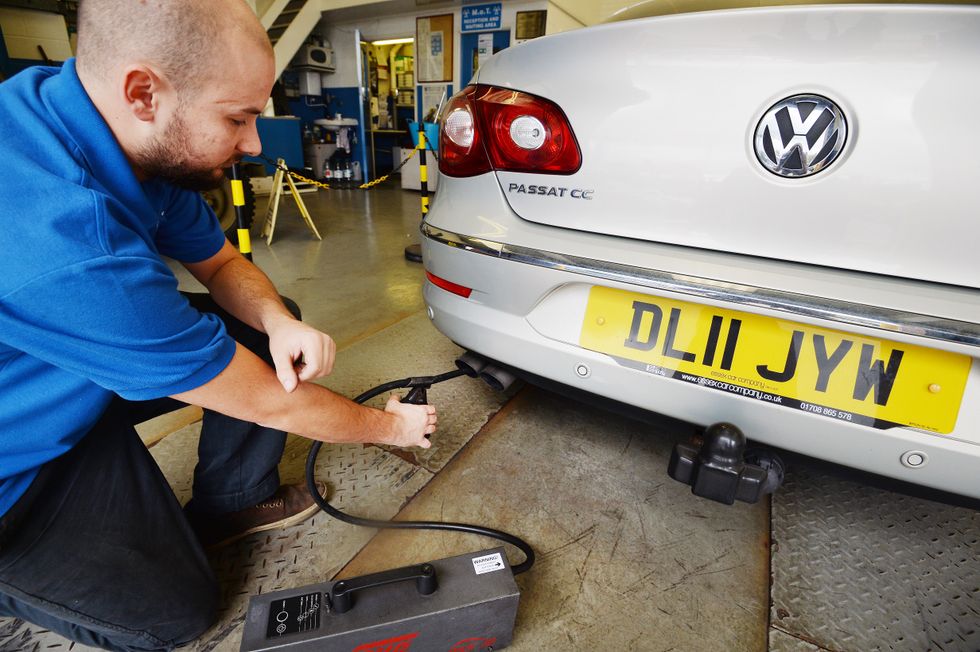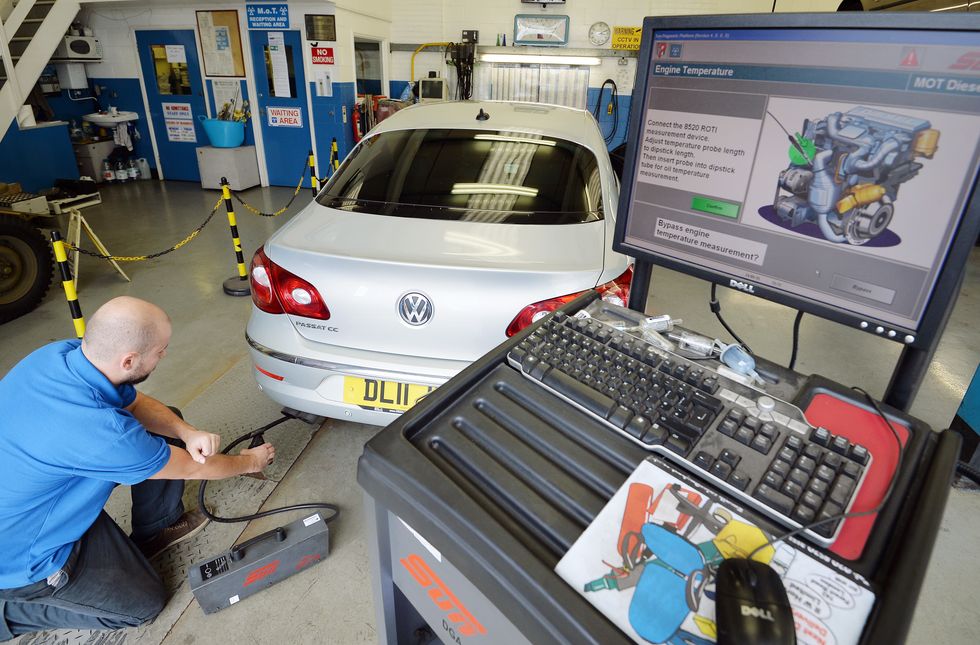Examples of ADAS systems include adaptive cruise control, anti-lock braking and blind-spot monitors
GETTY
Advanced driver-assistance systems (ADAS) come in many forms and are fitted inside cars to help drivers while travelling
Don't Miss
Most Read
Trending on GB News
Changes to the way MOT tests are conducted in the UK could mean that vehicles with advanced driver-assistance systems will undergo safety checks.
The changes come as the Department for Transport begins investigating whether the safety tech will leave drivers at risk.
Advanced driver-assistance systems (ADAS) systems come in many forms and are fitted inside cars to help drivers while travelling.
The features include options such as adaptive cruise control, anti-lock braking, blind-spot monitors, collision avoidance systems, traction and stability control, parking and proximity sensors, tyre pressure monitors and rain sensors that trigger window wipers.
Do you have a story you'd like to share? Get in touch by emailingmotoring@gbnews.uk

At present ADAS systems checks are not standardised in MOT testing
PALast year, the Parliamentary Advisory Council for Transport Safety called on the Government to make ADAS check mandatory in MOT tests.
PACTS recommended that all ADAS features in a vehicle either mandatory or installed voluntarily, should be checked during the MOT.
The council said: “If any of these mandatory safety-critical features are found to be malfunctioning that cannot be fixed on-site during MOT, then the vehicle should fail the MOT.
“In case of the malfunctioning of the voluntarily installed system, the driver/owner should be given a warning to get it fixed as soon as possible.”
In response the DfT is now considering making the safety test mandatory across the UK, a similar is coming into effect across Europe, however.
From next month, the General Safety Regulation 2 will come into force and will mean that all vehicles featuring lane keeping assistance and a reversing camera or sensors on all new cars will need to follow strict rules.
The Dft explained that at present ADAS systems, and "even their terminology", are not standardised.
This makes it difficult to assess accurately what percentage of vehicles are already fitted with the devices.
The department noted how due to the increased consideration of how ADAS systems should be regulated abroad, “it is reasonable to expect that in future there will be further regulation in the UK”.
For instance, vehicles could fail an MOT if “significant safety systems, like automatic emergency braking, are shown to be malfunctioning”.
The investigation into ADAS systems will also include considering the role of garages and their relationship with vehicle manufacturers who produce, and through the software, have an ongoing role in a vehicle’s ADAS systems, the department added.
It detailed: “We are particularly keen to work with industry and manufacturers on this so that the review can ensure that these technologies are properly maintained and tested.”
LATEST DEVELOPMENTS:
- Car insurance prices to plummet under new motoring plans - 'Labour is the only party truly on the side of drivers'
- Drivers warned as four major car brands recall almost 850,000 vehicles for serious safety concerns
- Rishi Sunak promises to launch major driving law changes to protect Britons from 20mph roads and huge fines

ADAS systems are fitted inside cars to help drivers while travelling
PAFor the long term, the departments warned that it will be necessary to look ahead to technologies and approaches that will be deployed in the vehicles of the future.








